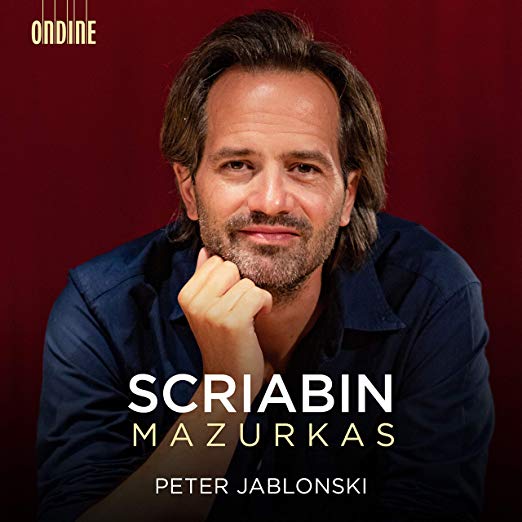
ESSENTIAL RECORDINGS

10 Mazurkas, Op. 3 9 Mazurkas, Op. 25 2 Mazurkas, Op. 40 2 Mazurkas, Op. posth Impromptu a la mazur in C major, Op. 2 No. 3
Throughout his life Russian composer and pianist Alexander Scriabin (1872-1915) displayed a great admiration for the music of Frederic Chopin. So much so that some of his early Sonatas and Preludes are written in the same harmonic style as Chopin. And similar to Chopin, only a handful of Scriabin's works were orchestral in nature, as most of his prolific output was devoted to the piano. And nowhere are the similarities more apparent than in the Op. 3 Mazurkas. After all, the Mazurka is native to Poland and not Russia. In his youth Scriabin had a voracious appetite for all music, most notably from German composers, and you can already denote a Wagnerian influence to his harmonic development. So as you progress through these opus numbers, the basic attributes of the Mazurka may remain constant, but Scriabin's highly evolved harmonic language expands their reach. Notice how the left-hand notation becomes increasinly more refined and a key element of the music's mesmerism. And by the time you reach the Op. 40 No. 2, you've entered this composer's mystical universe.
Swedish pianist Peter Jablonski was discovered by Vladimir Ashkenazy and signed to Decca in the early 90s where he released a few highly recommended recordings as a soloist or in collaboration with Ashkenazy conducting. Over time he's developed a curiosity and proficiency for composers who reside in the outlying regions of the repertoire. Despite the fact that over the years Scriabin has established himself as a strong central figure in the piano world, his music still requires a unique temperament and approach to sound its best. Peter Jablonski reaches in an brings out this music's opium-laced perfumes and colors, and projects their intoxicating essence very well. The music of Alexander Scriabin is not concerned with notes, but rather with what these notes can evoke. Jablonski's got this covered.
Jean-Yves Duperron - February 2020